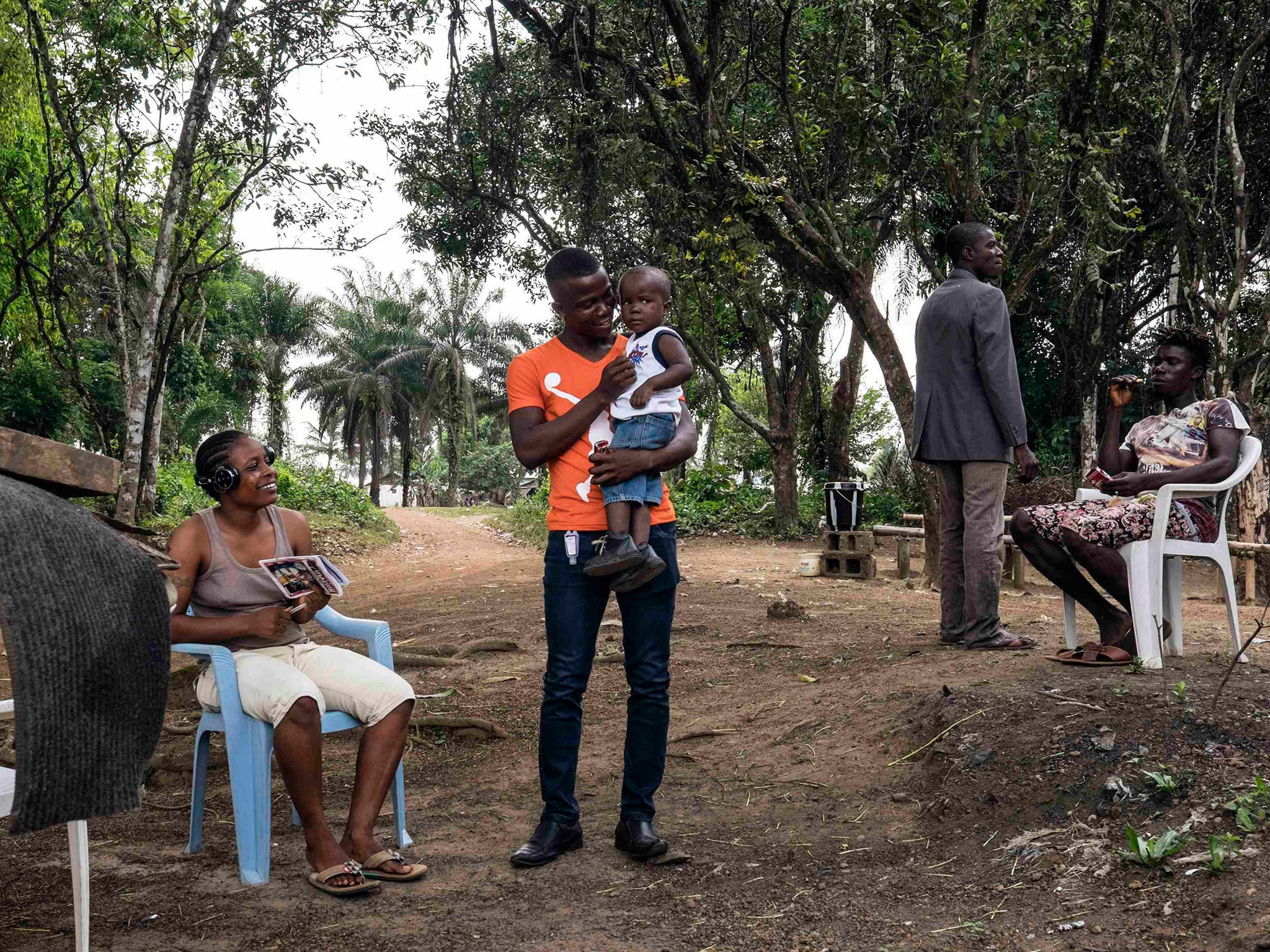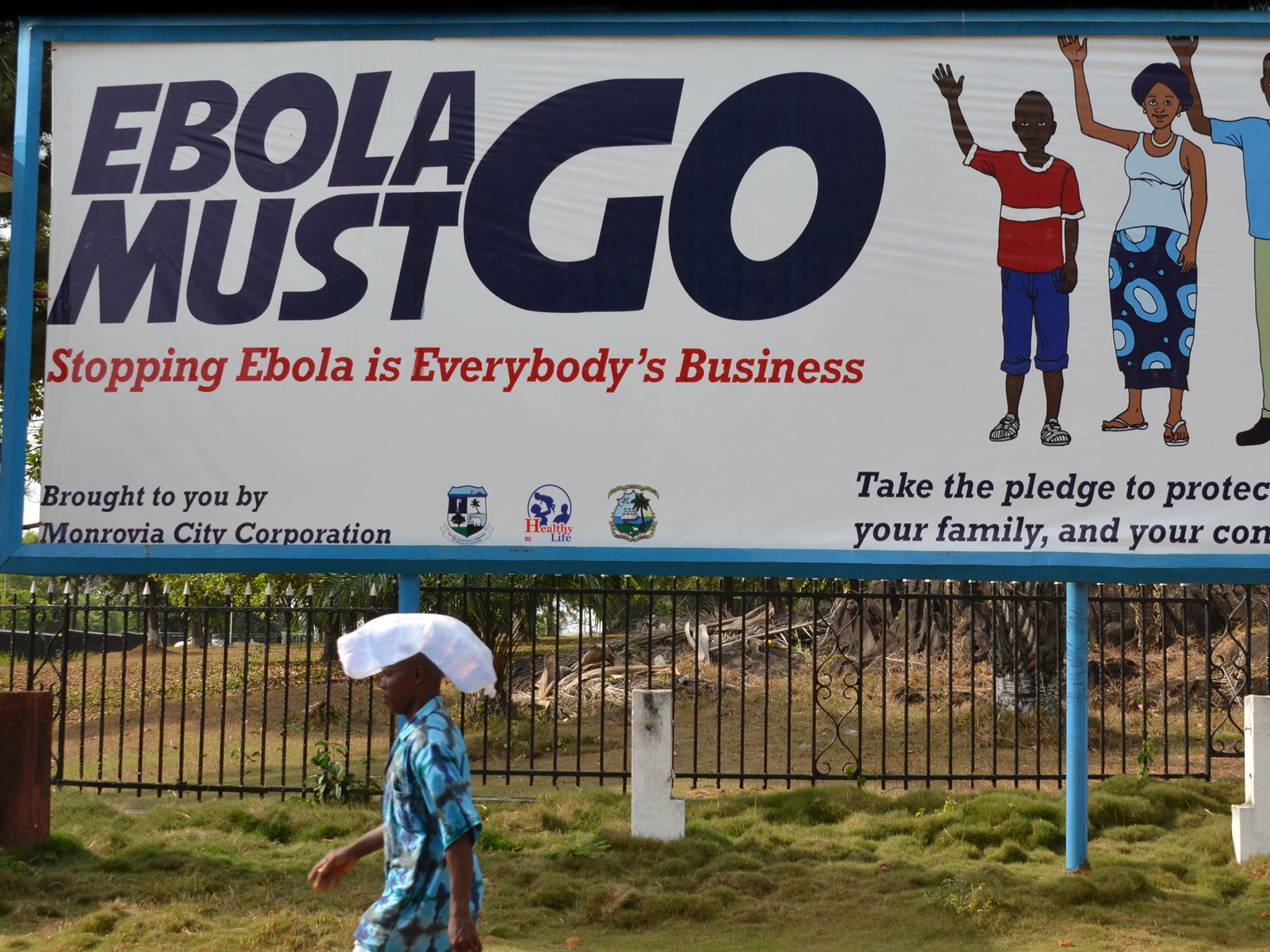Ebola outbreak: Disease ebbs in West Africa as aid agencies warn against complacency
As the number of new cases of the disease recedes each week in the worst-affected areas, international aid agencies warn that winding down the effort against the epidemic too quickly risks a resurgence

International aid agencies have warned that the response to the Ebola outbreak in West Africa risks being wound down too quickly and fear that it could become endemic if efforts to stem the spread of the disease are not maintained.
Earlier this week, the American military mission to Liberia was brought to an end as the number of cases in that country recedes, while according to figures produced by the World Health Organisation, the number of new cases each week in the worst-affected areas has fallen below 100 for the first time in almost a year. The update prompted the WHO to say that the focus is now on bringing to an end the biggest-ever Ebola outbreak, rather than just slowing its spread.
The outbreak – which has been concentrated in Liberia, Guinea and Sierra Leone – has claimed almost 10,000 lives, according to official figures, although health workers in the field are convinced that the true number is much higher.
While the governments in the affected countries and officials at the WHO have been at pains to suggest that the battle against Ebola is far from over, aid agencies fear that the response will slacken given the dramatic falls in the number of deaths from the disease. “While the overall number of cases has dropped, progress has now stalled,” Vickie Hawkins, the executive director of Médecins Sans Frontières UK, told The Independent.
“It only takes one case to reignite the outbreak, so there is no room for complacency. This epidemic has been defined by its unpredictability and its geographic spread; we cannot say with any certainty when it will be over.
“We are on the right track, but reaching zero cases will be difficult unless significant improvements are made in alerting new cases and tracing those who have been in contact with them.” Indeed, earlier this month, the number of weekly fatalities was reported to have actually risen against data from previous weeks.
More worryingly, in Guinea, the proportion of cases where the patient has contracted the disease from a known source is said to be about 15 per cent, meaning that in about 85 per cent of new cases the source of the disease is unknown. This exacerbates fears that Ebola will become endemic in high-risk areas, instead of being completely eradicated.
Furthermore, aid officials also warn that education about the disease is not catching up with the advances in its treatment and containment. In Guinea, Red Cross workers who recently attended the funeral of an Ebola victim were attacked when they tried to advise of the safest way of burying the body.

Yann Bonzon, head of the Guinean delegation of the International Committee of the Red Cross, told The New York Times that communities were learning to accept the safety advice of agencies such as his, but that the Red Cross encounters fresh resistance as each new village is affected by the outbreak.
Resistance “is evolving from one region to another region, and it’s following the virus”, he said. He added that in newly affected areas there is suspicion that the health workers are deliberately infecting people, and in one instance local people believed a rumour that “the Red Cross is spraying Ebola into the schools”.
There is also a problem with high-level intelligence about Ebola, and co-ordination between the governments of Sierra Leone, Guinea and Liberia is still poor.
“There is almost no information sharing for tracing Ebola contacts between the three worst-affected countries,” Ms Hawkins said. “This is a regional problem, not a country-specific one, but it is still not being dealt with as such.”
Those charged with fighting the outbreak are acutely aware of the economic devastation Ebola has caused West Africa, but many worry that financial needs may usurp the need to bring the disease under control.
According to the World Bank, the three worst-hit countries will each have lost more than 10 per cent of their GDP since the start of the outbreak and business leaders are already talking about the investment opportunities for companies that are willing to take the risk of returning.

Liberia’s President, Ellen Johnson Sirleaf, met US President Barack Obama in Washington yesterday to ask for assistance to her country’s efforts to recover from the effects of the virus. She has urged wealthy countries to continue their efforts as Liberia turns its attention to responding to future outbreaks of the disease.
She told Mr Obama that Liberia needed new power projects to keep hospital equipment running, roads so the sick could access medical facilities and clean water to prevent disease from spreading.
Clive Dawson, head of the British Chamber of Commerce in Sierra Leone, told the Reuters news agency that companies were looking at the stricken agriculture, health and construction sectors. “For the ones who are brave, the opportunities are enormous because the government is bending over backwards to help investors,” he said.
And MSF warns that even if the Ebola outbreak is finally contained, there will remain huge latent problems in the healthcare systems of each country.
Scores of medical workers have died in Sierra Leone, which already suffered from a chronic shortage of doctors. In 2010, the country had just 0.02 doctors per 1,000 people, compared with the UK, which has a ratio of about 2.8 per 1,000.
“It is necessary to improve [national healthcare systems] if we are to avoid future outbreaks of similar proportions,” Ms Hawkins said. “Relaunching and strengthening the paralysed health sector will take many months and needs to start now if we hope to tackle this post-Ebola challenge.”
Join our commenting forum
Join thought-provoking conversations, follow other Independent readers and see their replies
Comments
Bookmark popover
Removed from bookmarks